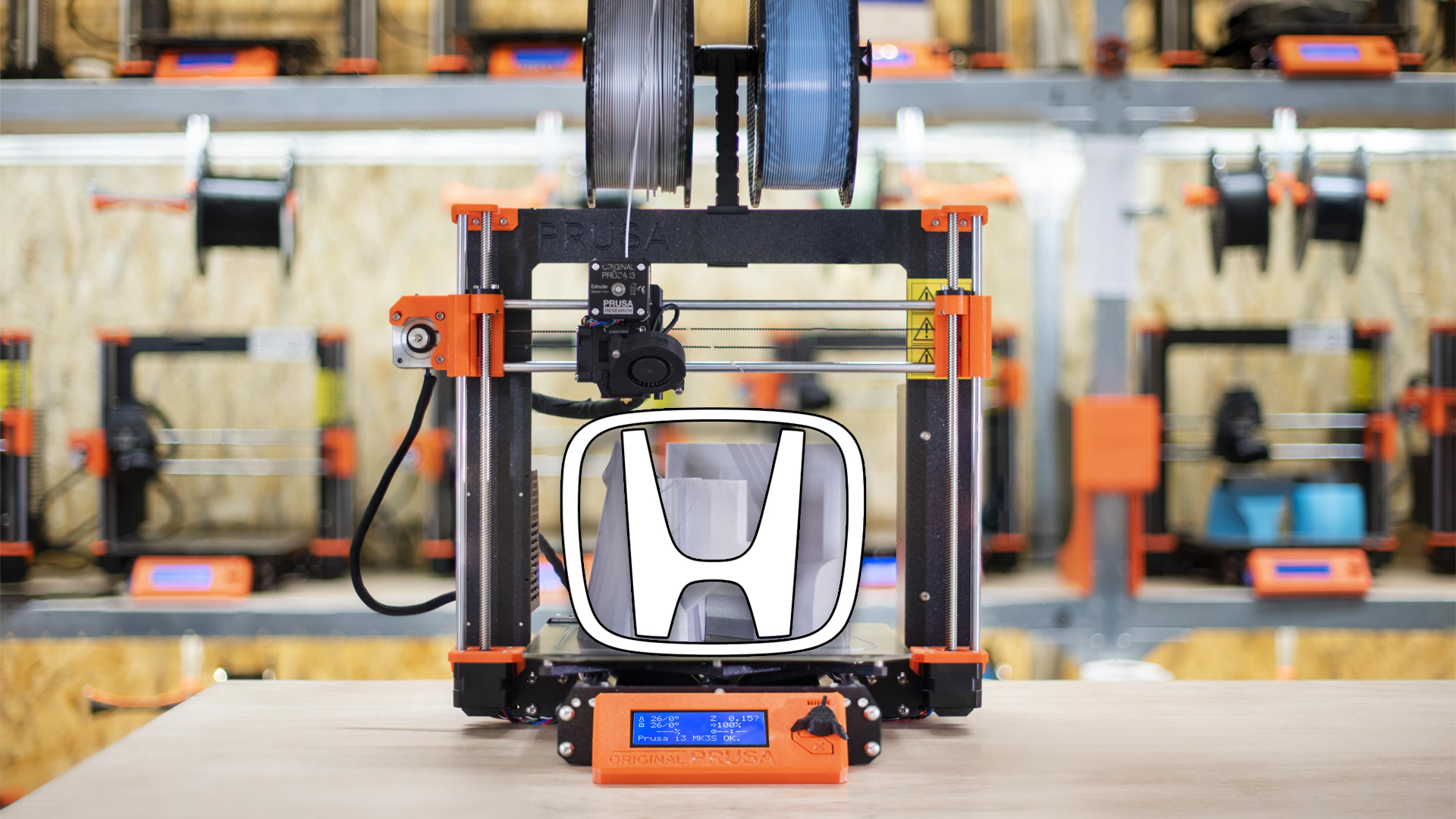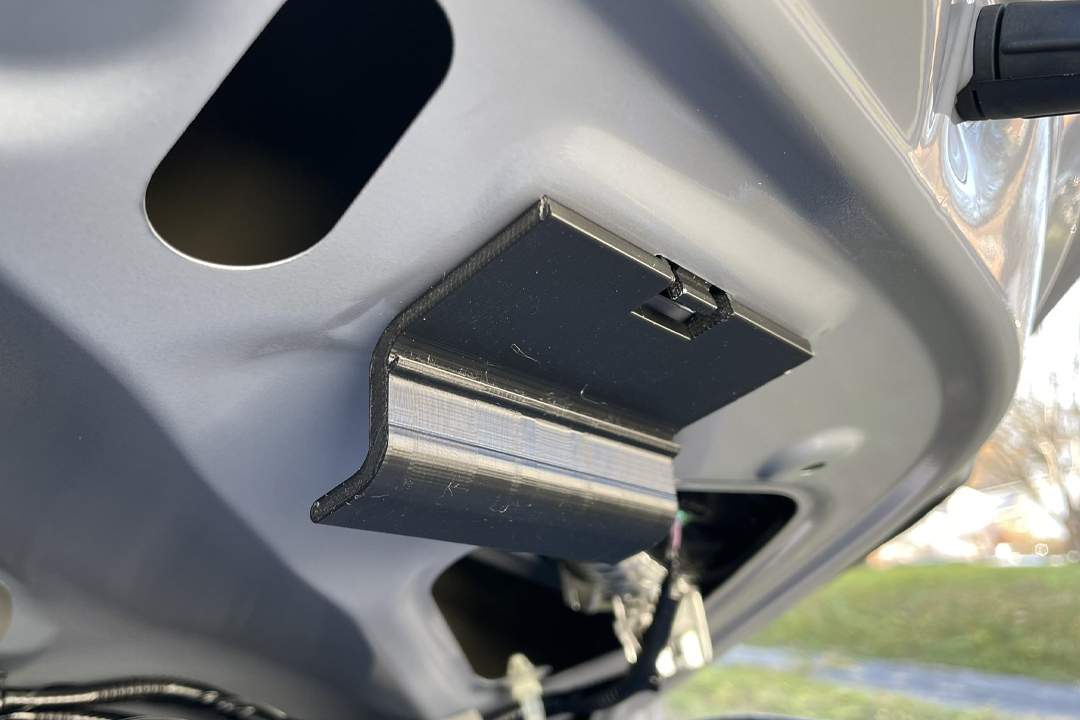

3D printing has been one of the greatest introductions to the automotive DIY scene in years. I’ve written about it before, and it’s amazing to watch problems get solved with unique solutions from imaginative minds across the globe. What’s more, it’s great to see car companies embrace the maker community, even supplying the plans to help build and share custom parts.
Unfortunately, not all automakers share that same sentiment.

Recently, I noticed a part that I made for my Honda Accord was removed from Printables, the newly rebranded 3D printing repository offered by Prusa. There seemed to be no rhyme or reason for it, but I didn’t think anything else about it…until reports of a mass deletion started popping up on Reddit.
All models referencing the word “Honda” posted prior to March 30, 2022, were seemingly removed from Printables without warning. These included speaker brackets, key housings, hood latches, shifter bushings, washer fluid caps, roof latch handles, and my trunk lid handle—a part not offered on 10th generation Accords sold in the U.S. at all. In fact, many of the removed parts had no Honda branding but were just compatible with Honda vehicles. As it turns out, Prusa says it was issued a takedown notice from Honda and removed all 3D models that referenced the brand.
“I can confirm to you that we have received a letter from a lawyer representing Honda, informing us that we were required to remove any model which used ‘Honda’ in the listing, the model itself, or one of several trademarks/logos also associated with Honda,” a Prusa spokesperson told The Drive in an email. “This will also be related to the naming of the files it self (sic), as for Honda this would be considered as a violation of their trademark/patents.”
A Prusa employee responded to a post on the company’s forums, noting that Honda sent a “huge legal document” that covered every model that the company wished to have deleted. The document reportedly included items that did not have Honda logos, but also specific items with certain shapes and dimensions—like a washer fluid reservoir cap, for example.
A response from another employee was posted suggesting other sites that host 3D models were also sent a similar takedown notice. These files still remain up on Thingiverse, Thangs, and other repositories at the time of publishing, however.
Honda Motors North America informed me the order was issued by Honda Motors Europe, though the latter did not respond when repeatedly asked for comment on the matter. Prusa also declined to provide The Drive with a copy of the document to review.

While it’s true that Honda must protect its trademarks and intellectual property, this particular scenario crosses into a legal conundrum. If a part doesn’t feature a Honda logo on it and simply states that it’s compatible with a particular vehicle, does that give Honda the right to enforce a potential trademark or copyright violation? Sort of.
A lot of it comes down to wording. Some files that were taken down were named something along the lines of “Honda Civic Cup Holder,” whereas others were titled similar to the likeness of “Cup Holder for Honda Civic.” The order of that wording matters and could be the reason Honda responded in the way it did, and it’s why Prusa obliged by taking down all items that referenced the Honda brand.
“From a trademark law perspective, there definitely can be a difference,” said Maya Eckstein, a partner at Hunton Andrews Kurth that specializes in the law surrounding additive manufacturing, in an email to The Drive. “Every situation is fact-specific, but, generally speaking, the former suggests that the cup holder was manufactured by Honda or is endorsed by Honda (i.e. that Honda is the “source” of the item being sold), risking a likelihood of confusion and, thus, a trademark violation. The latter doesn’t necessarily do that; it falls into the category of nominative fair use, where you are merely describing the thing being sold but not implying sponsorship or endorsement by the brand.”
Eckstein does have a word of advice for makers who want to continue producing these types of files and distributing them to the community: “When referring to a brand in this way, it’s important to refer to it simply; using the brand’s distinctive logos, lettering, coloring, etc., could lead to a likelihood of confusion about whether the brand is the source of the product.”

“We are working with other companies to make them realize this should be embraced and not hunted down,” said Josef Prusa, CEO of Prusa Research in a Reddit thread.
At the end of the day, Honda’s decision to protect its property is warranted; however, Prusa’s statement that the automaker issued a takedown of “any model which used ‘Honda’ in the listing” feels overly broad and perhaps an overreach of fair use. It also feels like a setback for the maker community as a whole.
Got a tip or question for the author? Contact them directly: rob@thedrive.com